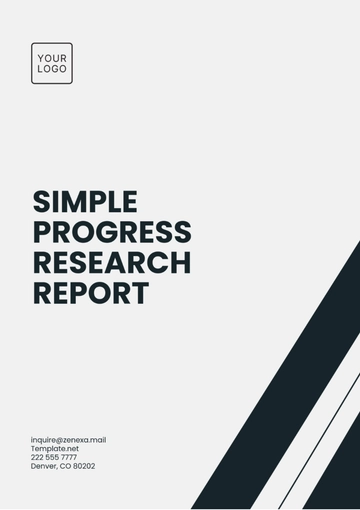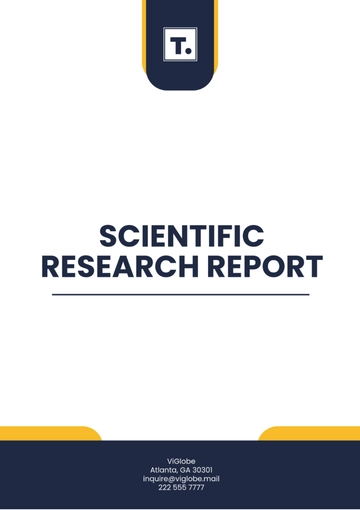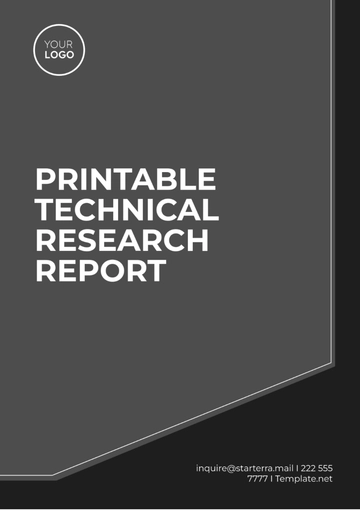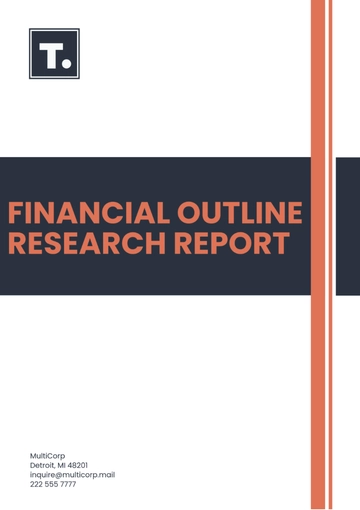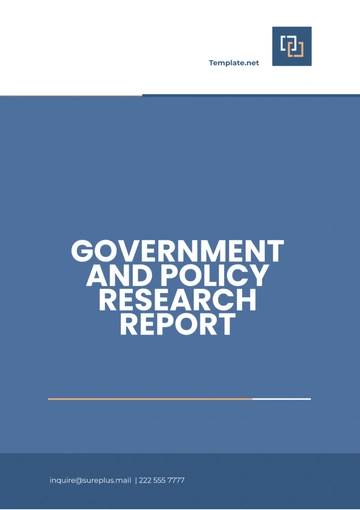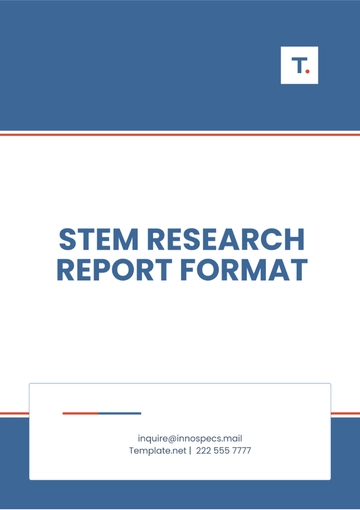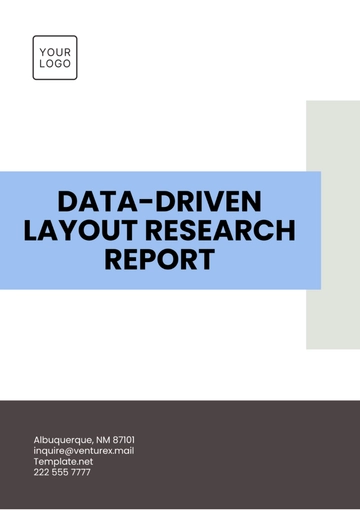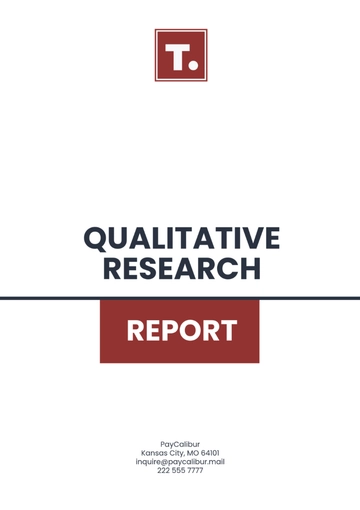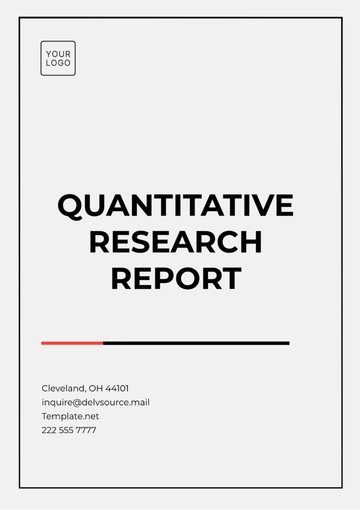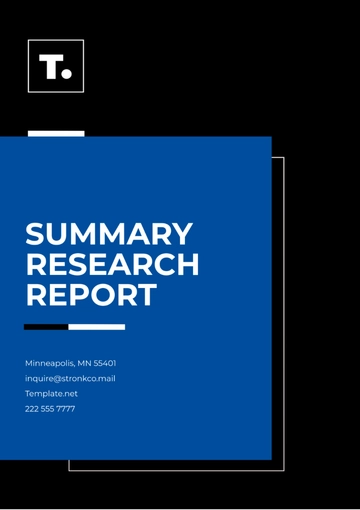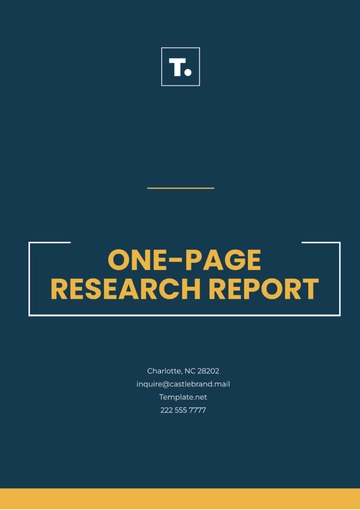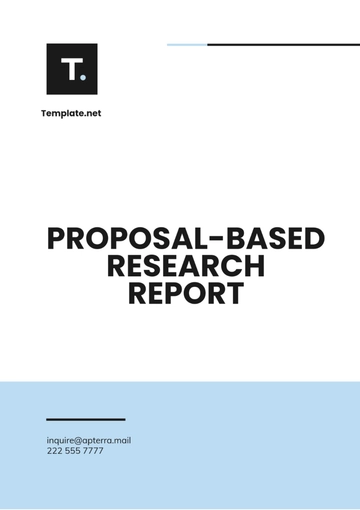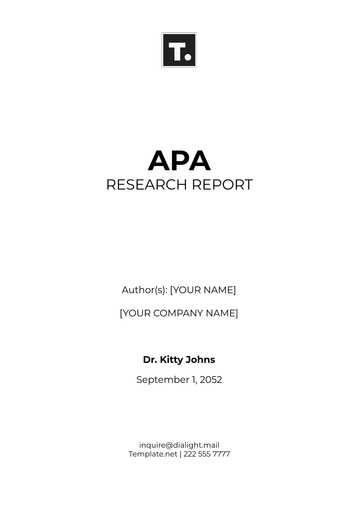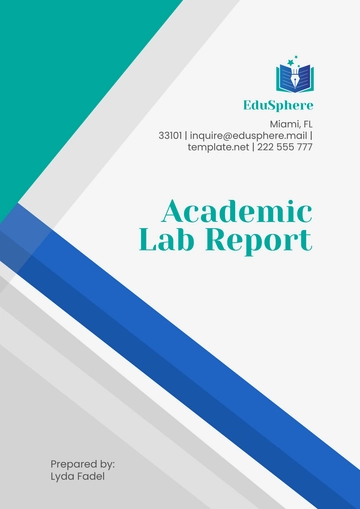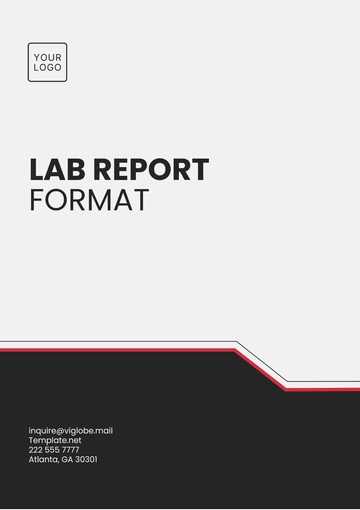Free Research Report Outline
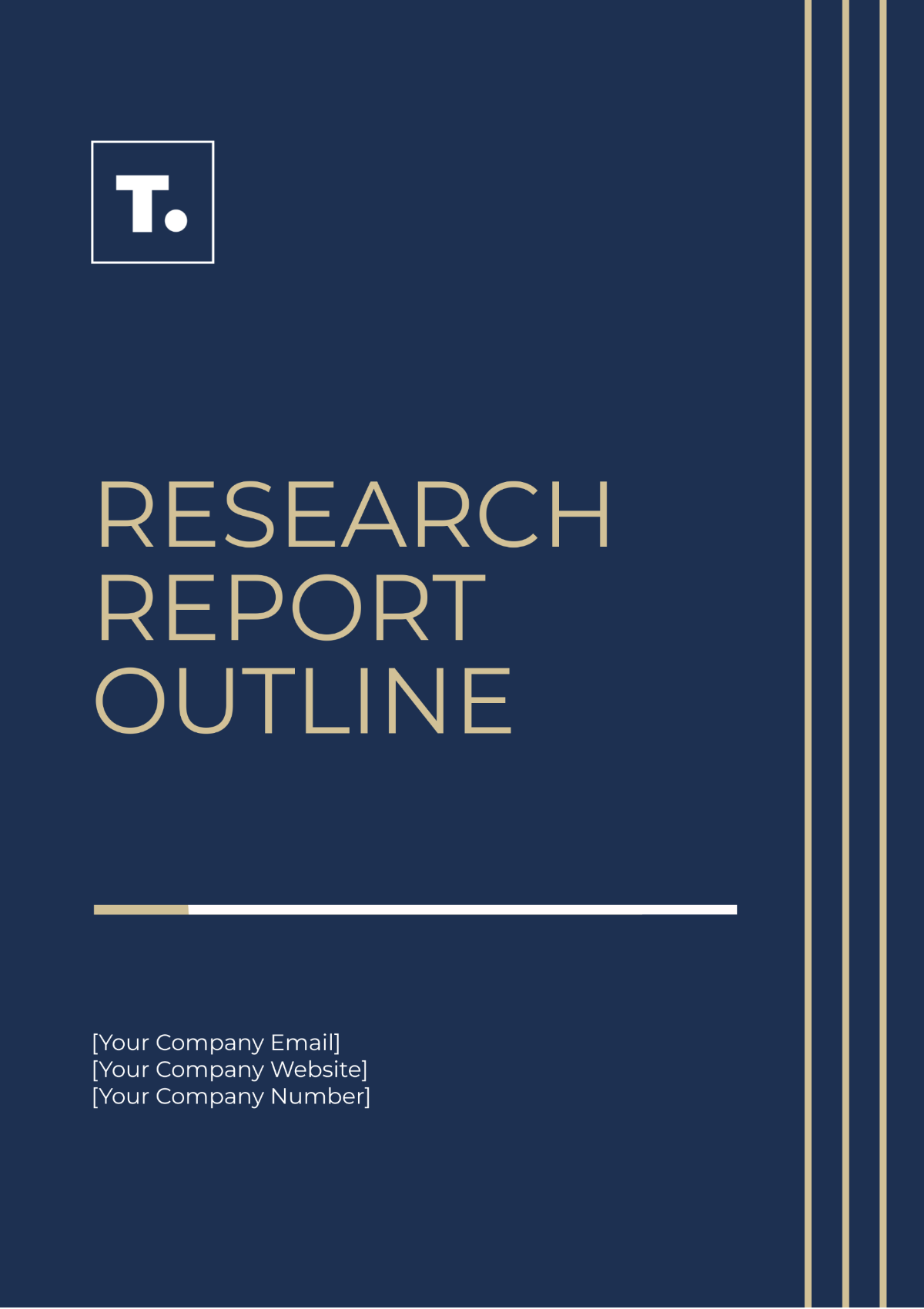
I. Introduction
A. Background
Effective planning and organization are essential components of successful project management and business operations. Planning involves setting objectives, determining the necessary actions to achieve these objectives, and allocating resources to execute the actions. Organization, on the other hand, refers to the systematic arrangement of tasks and resources to achieve the set objectives efficiently and effectively. In the context of mid-sized technology companies, structured planning and organization can lead to significant improvements in project outcomes and overall business performance.
B. Objectives
The primary objectives of this research are:
To analyze the impact of structured planning on project success rates in mid-sized technology companies.
To identify best practices in organizational planning that contribute to higher efficiency and effectiveness.
To evaluate the role of technology in enhancing planning and organizational processes.
To explore the challenges faced by mid-sized technology companies in implementing structured planning and organization.
C. Scope
This research focuses on mid-sized technology companies in the United States from 2050 to 2051. The study includes companies with 100 to 500 employees and annual revenues between $50 million and $200 million. The research excludes small startups and large multinational corporations to maintain a focused analysis on mid-sized firms. The geographical scope is limited to the U.S., and the industry scope is limited to technology companies to provide a detailed and relevant analysis.
D. Methodology
This study employs a mixed-methods approach, combining qualitative interviews with quantitative surveys. Data were collected from 50 mid-sized technology companies through online surveys distributed to project managers and in-depth interviews with senior executives. The quantitative data were analyzed using statistical software to identify trends and correlations, while the qualitative data were coded and analyzed for recurring themes and insights.
II. Literature Review
A. Overview of Existing Research
Previous studies indicate that effective planning correlates with higher project success rates. For example, Smith (2048) found that companies with structured planning processes report significantly better project outcomes. However, gaps remain in understanding how mid-sized firms specifically benefit from these practices, especially in the rapidly evolving technology sector.
B. Theoretical Framework
The research is grounded in the Project Management Institute's (PMI) framework, which emphasizes planning as a core component of project management. According to PMI (2049), effective planning involves defining project goals, developing detailed project plans, and continuously monitoring progress against the plans.
C. Key Concepts
Planning: The process of setting objectives and determining the actions required to achieve them, including timelines, resource allocation, and risk management.
Organization: The arrangement of tasks, responsibilities, and resources in a structured manner to achieve the set objectives efficiently and effectively.
Technology Integration: The use of software and digital tools to streamline planning and organizational processes, such as project management software, collaboration tools, and data analytics platforms.
III. Methodology
A. Research Design
The study uses an explanatory research design to investigate the relationship between planning practices and project outcomes in mid-sized tech firms. This design helps to explain the cause-and-effect relationships between structured planning and improved project success rates.
B. Data Collection
Data were collected through a combination of online surveys and in-depth interviews. The online surveys were distributed to project managers, including both closed and open-ended questions to gather quantitative and qualitative data. In-depth interviews were conducted with senior executives to gain deeper insights into the challenges and best practices in planning and organization.
C. Sampling
Participants were selected using stratified random sampling to ensure representation from different departments and levels within the companies. The sample included project managers, team leaders, and senior executives from various departments such as IT, marketing, and operations.
D. Data Analysis
Quantitative data were analyzed using regression analysis to determine the impact of planning practices on project success rates. Descriptive statistics were used to summarize the data, and inferential statistics were applied to test hypotheses. Qualitative data from interviews were coded and analyzed for recurring themes, patterns, and insights using thematic analysis.
IV. Findings
A. Overview of Results
The findings suggest that companies with structured planning processes report a 30% higher success rate in their projects compared to those with ad-hoc planning. The use of advanced planning tools and technologies significantly enhances the effectiveness of these processes.
B. Detailed Findings
Impact of Planning Tools: Companies using advanced planning software reported more accurate project timelines, budgets, and improved resource allocation. Tools such as project management software and collaboration platforms were particularly beneficial.
Best Practices: Key practices identified include regular review meetings to monitor progress, clear documentation of project plans and procedures, and active stakeholder involvement throughout the project lifecycle.
Challenges: Common challenges faced by mid-sized tech firms include resistance to change among employees, lack of training on new planning tools, and difficulties in maintaining consistent planning processes across departments.
C. Visual Representation
Table 1: Comparison of Project Outcomes with and without Structured Planning
Planning Practice | Success Rate | Average Budget Overrun | Average Time Overrun |
|---|---|---|---|
Structured Planning | 85% | 10% | 5% |
Ad-hoc Planning | 55% | 25% | 20% |
V. Discussion
A. Interpretation of Findings
The research confirms that structured planning significantly enhances project success rates. Companies that invest in advanced planning tools and technologies are better equipped to manage their projects efficiently. The positive impact of planning tools on project timelines and budgets highlights the importance of integrating technology into planning processes.
B. Comparison with Existing Literature
Our findings align with previous research by Johnson (2047), which highlighted the importance of regular review meetings and clear documentation in successful project management. However, our study provides new insights into the specific challenges faced by mid-sized tech firms, such as resistance to change and lack of training.
C. Implications
For practitioners, the study underscores the importance of investing in planning tools and continuous training for staff. For policymakers, there is a need to support initiatives that promote best practices in organizational planning, such as providing grants for technology upgrades and training programs.
VI. Conclusion
A. Summary of Findings
Structured planning and the integration of technology are key drivers of project success in mid-sized technology companies. Companies with well-defined planning processes and advanced planning tools report higher success rates and better project outcomes.
B. Recommendations
Invest in Advanced Planning Tools: Companies should invest in project management software and other digital tools to streamline planning processes.
Conduct Regular Training Sessions: Regular training sessions should be conducted to ensure employees are proficient in using planning tools and understand best practices.
Implement Regular Review and Feedback Mechanisms: Regular review meetings and feedback mechanisms should be established to monitor progress and make necessary adjustments.
C. Limitations
The study is limited to mid-sized tech firms in the U.S. and may not be generalizable to other industries or regions. The data collection methods also rely on self-reported information, which may be subject to bias.
D. Future Research
Future research should explore the impact of planning practices in other sectors, such as healthcare or manufacturing, and investigate the long-term benefits of technology integration in organizational planning. Additionally, studies could examine the role of organizational culture in the successful implementation of planning practices.
VII. Appendices
A. Data Collection Instruments
Survey Questionnaire
On a scale of 1 to 5, how do you rate the effectiveness of your current planning processes?
What planning tools do you use in your projects?
How often do you conduct review meetings during a project?
What are the main challenges you face in implementing structured planning processes?
Interview Guide
Can you describe a recent project where planning played a crucial role in its success?
What are the best practices in planning and organization that your company follows?
What challenges do you face in implementing and maintaining structured planning processes?
How has the integration of technology impacted your planning and organizational practices?
B. Additional Data
Survey Results
70% of respondents reported using project management software, such as Asana or Trello.
60% of respondents conduct review meetings at least once a week.
50% identified resistance to change as a major challenge in implementing structured planning processes.
Research Conducted by: [YOUR NAME]
Contact Information: [YOUR EMAIL]
- 100% Customizable, free editor
- Access 1 Million+ Templates, photo’s & graphics
- Download or share as a template
- Click and replace photos, graphics, text, backgrounds
- Resize, crop, AI write & more
- Access advanced editor
Optimize your research efficiency with Template.net's Research Report Outline Template. Tailor-made for academics and professionals, this customizable document is editable via our intuitive AI Editor Tool. Craft detailed outlines effortlessly and streamline your workflow with sections for literature review, methodology, and findings. Enhance your productivity today with our user-friendly template.
You may also like
- Sales Report
- Daily Report
- Project Report
- Business Report
- Weekly Report
- Incident Report
- Annual Report
- Report Layout
- Report Design
- Progress Report
- Marketing Report
- Company Report
- Monthly Report
- Audit Report
- Status Report
- School Report
- Reports Hr
- Management Report
- Project Status Report
- Handover Report
- Health And Safety Report
- Restaurant Report
- Construction Report
- Research Report
- Evaluation Report
- Investigation Report
- Employee Report
- Advertising Report
- Weekly Status Report
- Project Management Report
- Finance Report
- Service Report
- Technical Report
- Meeting Report
- Quarterly Report
- Inspection Report
- Medical Report
- Test Report
- Summary Report
- Inventory Report
- Valuation Report
- Operations Report
- Payroll Report
- Training Report
- Job Report
- Case Report
- Performance Report
- Board Report
- Internal Audit Report
- Student Report
- Monthly Management Report
- Small Business Report
- Accident Report
- Call Center Report
- Activity Report
- IT and Software Report
- Internship Report
- Visit Report
- Product Report
- Book Report
- Property Report
- Recruitment Report
- University Report
- Event Report
- SEO Report
- Conference Report
- Narrative Report
- Nursing Home Report
- Preschool Report
- Call Report
- Customer Report
- Employee Incident Report
- Accomplishment Report
- Social Media Report
- Work From Home Report
- Security Report
- Damage Report
- Quality Report
- Internal Report
- Nurse Report
- Real Estate Report
- Hotel Report
- Equipment Report
- Credit Report
- Field Report
- Non Profit Report
- Maintenance Report
- News Report
- Survey Report
- Executive Report
- Law Firm Report
- Advertising Agency Report
- Interior Design Report
- Travel Agency Report
- Stock Report
- Salon Report
- Bug Report
- Workplace Report
- Action Report
- Investor Report
- Cleaning Services Report
- Consulting Report
- Freelancer Report
- Site Visit Report
- Trip Report
- Classroom Observation Report
- Vehicle Report
- Final Report
- Software Report


